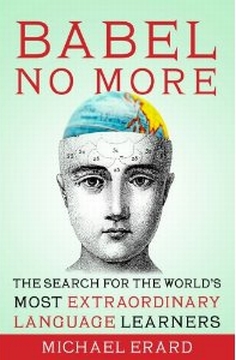- HOME
- INTRO TO THE FORUM
- USE AND MISUSE
- BADLY WRITTEN, BADLY SPOKEN
- GETTING
TO KNOW ENGLISH - PREPARING FOR ENGLISH PROFICIENCY TESTS
- GOING DEEPER INTO ENGLISH
- YOU ASKED ME THIS QUESTION
- EDUCATION AND TEACHING FORUM
- ADVICE AND DISSENT
- MY MEDIA ENGLISH WATCH
- STUDENTS' SOUNDING BOARD
- LANGUAGE HUMOR AT ITS FINEST
- THE LOUNGE
- NOTABLE WORKS BY OUR VERY OWN
- ESSAYS BY JOSE CARILLO
- Long Noun Forms Make Sentences Exasperatingly Difficult To Grasp
- Good Conversationalists Phrase Their Tag Questions With Finesse
- The Pronoun “None” Can Mean Either “Not One” Or “Not Any”
- A Rather Curious State Of Affairs In The Grammar Of “Do”-Questions
- Why I Consistently Use The Serial Comma
- Misuse Of “Lie” And “Lay” Punctures Many Writers’ Command Of English
- ABOUT JOSE CARILLO
- READINGS ABOUT LANGUAGE
- TIME OUT FROM ENGLISH GRAMMAR
- NEWS AND COMMENTARY
- BOOKSHOP
- ARCHIVES
Click here to recommend us!
READINGS IN LANGUAGE
This section features links to interesting, instructive, or thought-provoking readings about the English language and related disciplines. The selections could be anywhere from light and humorous to serious and scholarly, and they range widely from the reading, writing, listening, and speaking disciplines to the teaching and learning of English.
New book explores upper limits of being massively multilingual
Many of us learn to speak one or more foreign languages on top of our mother tongue, but what would it take to learn, say, 20 to 70 languages in all? Indeed, to what extent can the human brain manage to be massively multilingual? The answers to these questions are explored by writer, journalist, and linguist Michael Erard in Babel No More: The Search for the World’s Most Extraordinary Language Learners (Free Press, 306 pages), a book scheduled for release in the United States this coming January 10.

Erard chronicles the language-learning secrets of such massively multilingual individuals as the 19th century Italian cardinal Giuseppe Mezzofanti, who was said to speak 72 languages; the turn-of-the-century German diplomat Emil Krebs, 68 languages; and a modern-day polyglot whom Erard identifies only as Alexander, dozens of languages. He explores various hypotheses to explain the language-learner’s gift, among them the near-autism of hyperpolyglots in which an “extreme male brain” seeks to master systems; the “Geschwind-Galaburda” cluster of traits that supposedly result from abnormal antenatal exposure to hormone; and the discovery of the FOXP2 brain gene, a mutation of which could cause language loss. However, as the Economist magazine observes in a review of Babel No More in its December 31, 2011 issue, “In the end Mr. Erard is happy simply to meet interesting characters, tell fascinating tales and round up the research without trying to judge which is the best work.”
Read “The gift of tongues,” a review of Michael Erard’s Babel No More, in the Economist now!
ABOUT THE AUTHOR:
Michael Erard is a writer and journalist with graduate degrees in linguistics and rhetoric from the University of Texas at Austin. He has written about language, linguists, and linguistics for Science, Seed, Wired, The Atlantic, The New York Times, and New Scientist and is a contributing writer for The Texas Observer and Design Observer. His first book, Um...: Slips, Stumbles, and Verbal Blunders, and What They Mean, is a natural history of things we wish we didn’t say (but do), as well as a look at what happens in our culture when we do (and wish we didn’t). He was awarded the Dobie Paisano Writing Fellowship in 2008 to work on Babel No More.
ANOTHER INTERESTING READING:
In “The Muses of Insert, Delete and Execute,” an article that came out in the December 25 issue of The New York Times, Jennifer Schuessler reports about the quest of Matthew G. Kirschenbaum, an associate professor of English at the University of Maryland, to recover the lost and murky literary history of word processing. Schuessler quotes Kirschenbaum as declaring during a recent lunchtime lecture at the New York Public Library: “The story of writing in the digital age is every bit as messy as the ink-stained rags that would have littered Gutenberg’s print shop or the hot molten lead of the Linotype machine.”
Read Jennifer Schuessler’s “The Muses of Insert, Delete and Execute” in The New York Times now!
Click to read comments or post a comment
View the complete list of postings in this section
(requires registration to post)






